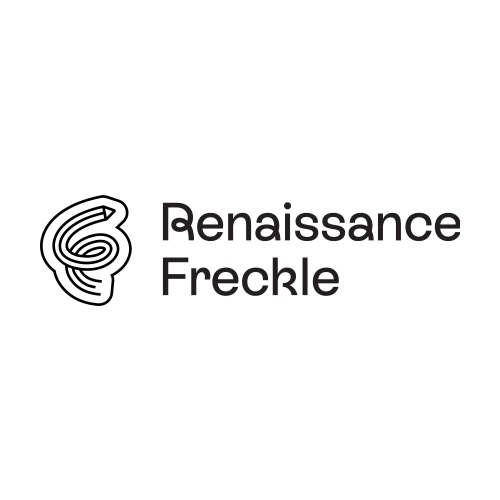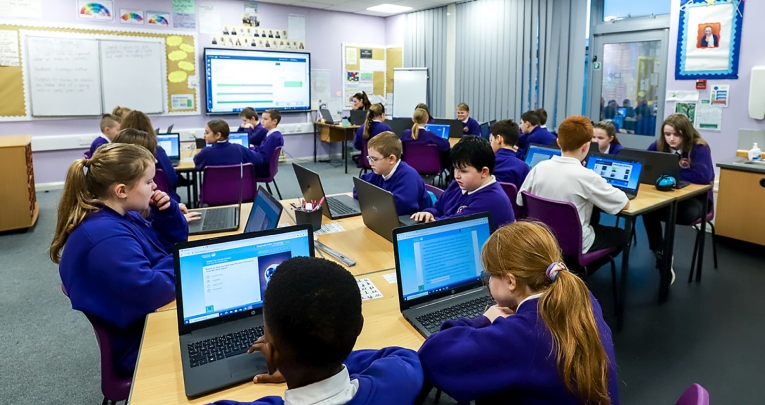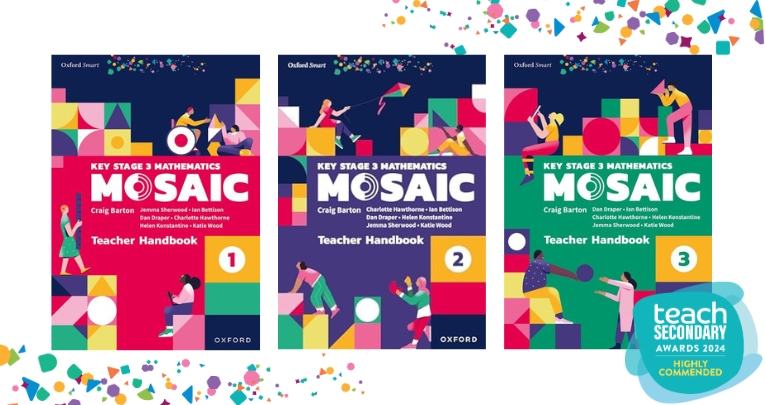Discover the transformative power of Freckle in maths education…
In the ever-evolving landscape of education, where maths stands as a fundamental pillar, the need for innovative tools that address the challenges faced by both students and teachers has never been more crucial.
Freckle is an online maths practice tool that goes beyond traditional learning with its adaptability, engagement features, and a profoundly personalised approach.
Freckle integrates seamlessly with Star Maths to offer a complete maths solution by assessing students’ abilities and tracking their progress over time.
The platform identifies and allows students to practise Focus Skills, the foundational skills that are essential to advancing learning. The latest KS3 content update brings a wealth of enhancements too, offering an enriched learning experience.
“The platform identifies and allows students to practise Focus Skills, the foundational skills that are essential to advancing learning.”
With unlimited self-paced practice, teacher assignment and planning tools, detailed reporting, and a treasure trove of over 3,000 new differentiated questions aligned to the national curriculum, Freckle keeps student engagement high without increasing teacher workload
Freckle’s capability to identify a student’s prerequisite skills ensures personalised learning that aligns with each student’s unique level of understanding, so all students can engage and keep motivated in maths practice tasks spanning all areas of numeracy.
Dive deeper into the transformative potential of Freckle by watching this short video.
Following Rishi Sunak’s recent proposal to extend maths education in England until the age of 18, the landscape of maths education is under scrutiny.
Our recent YouGov survey, comprising insights from over 1,000 teachers, sheds light on the hurdles students face and possible solutions.
Key findings:
- Confidence as a barrier: More than half (57%) of teachers identify confidence as the primary barrier to students’ enjoyment of maths.
This underscores the emotional dimension of learning and emphasises the need for a positive and supportive environment to boost students’ confidence in tackling maths challenges. - Real-world applications and societal perceptions: 55% of teachers highlight students’ lack of recognition of the real-world application and benefit of maths as a significant barrier.
Additionally, 46% note a societal culture that accepts struggling with maths as a hindrance. - Maths anxiety can also affect teachers: Maths anxiety isn’t confined to students alone: 30% of teachers admit feeling uncomfortable solving a maths problem in front of students, highlighting the need to address this anxiety among teachers too.
- Parental influence: Nearly a third (32%) of teachers report frequently hearing parents speak negatively about maths.
Recognising the crucial role parental attitudes play in shaping a child’s perception of maths, it is essential to involve families in fostering a positive learning environment. - Teacher-recommended solutions: Teachers themselves propose solutions, with 39% emphasising the need for more engaging classroom and homework resources and 27% highlighting the importance of personalised maths practice.
Tailoring learning experiences to individual student needs emerges as a key strategy to overcome barriers and promote inclusive learning.
“We all need to foster a positive message around maths to empower children to feel more confident and capable in the subject, paving the way for a brighter future.”
In response to these findings, former teacher and Renaissance consultant Frances Kingston states:
“Numeracy skills are an essential part of everyday life, whether we are paying bills, measuring ingredients for cooking, or helping our children with their homework.
“However, this research highlights an ongoing lack of confidence in maths across the population. Our aim is to support teachers and parents in their efforts to engage children with the subject from an early age and boost their confidence.”
Kingston continues:
“By accessing the right resources, and harnessing engaging technology like Freckle, teachers can start to dispel the notion that some individuals have a natural aptitude for maths while others do not.
“We all need to foster a positive message around maths to empower children to feel more confident and capable in the subject, paving the way for a brighter future.”
Share your schools maths challenges and experiences with us for a chance to win a free Kindle!











